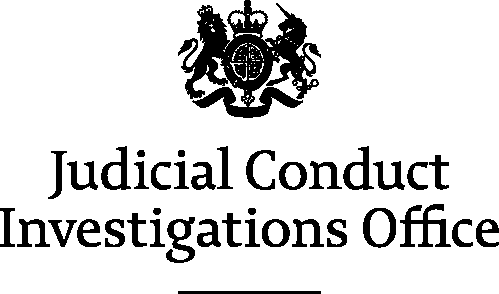


JCIO 03/24
Date: 26 January 2024
A spokesperson for the Judicial Conduct Investigations Office said:
The Lady Chief Justice, with the Lord Chancellor’s agreement, has issued Deputy District Judge (DDJ) Marian Lynch with formal advice for misconduct after she rudely interrupted a party to proceedings and spoke in a tone that caused distress.
The Guide to Judicial Conduct reminds judges to be courteous, patient, tolerant and to respect the dignity of all. Following an investigation carried out under the Judicial Conduct (Judicial and other office holders) Rules 2014, a nominated judge found that DDJ Lynch’s behaviour amounted to misconduct and recommended that she should be issued with formal advice.
In making their recommendation, the nominated judge considered that DDJ Lynch had rudely interrupted the complainant and spoke to her in an inappropriate tone on multiple occasions.
The nominated judge took into consideration the fact that DDJ Lynch had been frustrated by a difficult day and that the behaviour was out of character. She was remorseful and vowed to prevent such incidents in future. It was also noted that she had an unblemished conduct history and that a number of allegations were not upheld.
Having considered the facts of the case, the Lady Chief Justice and Lord Chancellor agreed with the nominated judge that DDJ Lynch’s actions amounted to judicial misconduct and that the appropriate disciplinary sanction is formal advice.
Media queries in relation to the JCIO should be made in the first instance to the Judicial Press Office - telephone 020 7073 4852 or via email - press.enquiries@judiciary.gsi.gov.uk
Sanctions for misconduct by judicial office-holders are set out in the Constitutional Reform Act 2005. They are, in order of severity: formal advice, formal warning, reprimand and removal from office.
For more information about the Office, including details on how to make a complaint against a judicial office holder, you can visit the JCIO website at: Judicial Conduct Investigations website